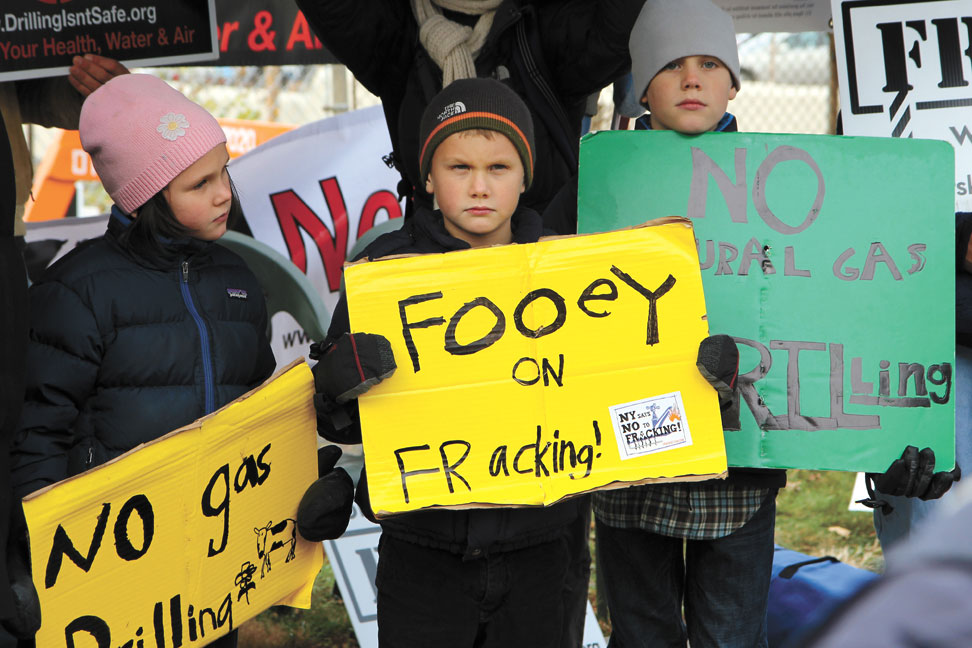
On Oct. 2, State Supreme Court Justice Ferris Lebous ruled to overturn the city of Binghamton’s moratorium on natural gas drilling.
The moratorium, Local Law 11-006, was passed in December 2011 to delay hydrofracking in Binghamton for two years.
This is the first time a local law banning or delaying hydraulic fracturing in New York has been overturned by judiciaries.
In his ruling, Lebous said the city of Binghamton did not follow the proper procedure to enact a moratorium, making the moratorium invalid.
“First, there has been no showing of a dire need,” Lebous wrote. “Second, since the DEC is not yet issuing permits, there is also no crisis nor a crisis condition that could possibly be shown by the City at this time. Finally, the City clearly did not enact this law so that it could take steps to study or alleviate any problems that may be caused by gas drilling, exploration or storage.”
Binghamton Mayor Matt Ryan said he intends to appeal the decision.
In his decision, Lebous said the city of Binghamton could not use its “police power solely as a means to satisfy segments of the community.”
Mayor Ryan countered that the majority of the Binghamton population favors a moratorium on drilling.
“More than 60 percent of people do not want drilling in this area,” he said.
Stacey Duncan, government relations manager for the Greater Binghamton Chamber of Commerce, however, is encouraged by the decision.
“We are pleased that the State Supreme Court overturned the City of Binghamton’s two-year moratorium on hydraulic fracturing,” Duncan wrote in an email. “The DEC, through the SGEIS, already prohibits natural gas activity within most of the city limits, which demonstrates that authority over mineral rights should remain with the state’s designated regulatory agency.”
Ryan stressed that the effects of hydrofracking should be studied more thoroughly before allowing it in Binghamton.
“It’s an industry in its infancy and we don’t want to be guinea pigs,” Ryan said. ”Gas isn’t going any place, if they ever find out a way to get it out of there safely maybe then people will support it. But I don’t think people are satisfied that it can be done safely.”
Ryan said that if the city loses the appeal, he will work toward another moratorium, this time following the procedure used by other communities whose drilling bans were upheld by the court.
“One thing I was very encouraged by was the judge affirmed the Middlefield and Dryden [hydrofracking bans]; said they were well-reasoned decisions which means we have the power to pass [more] moratoriums, more bans in our individual communities,” he said.
Ryan acknowledged that politics might make passing another moratorium more difficult than the previous one; however, he believes public opinion is on his side.
“I have a different city council, so it might be more difficult,” he said. “I have a feeling based on the polling that they’re going to have a lot of pressure on them to pass a ban.”


